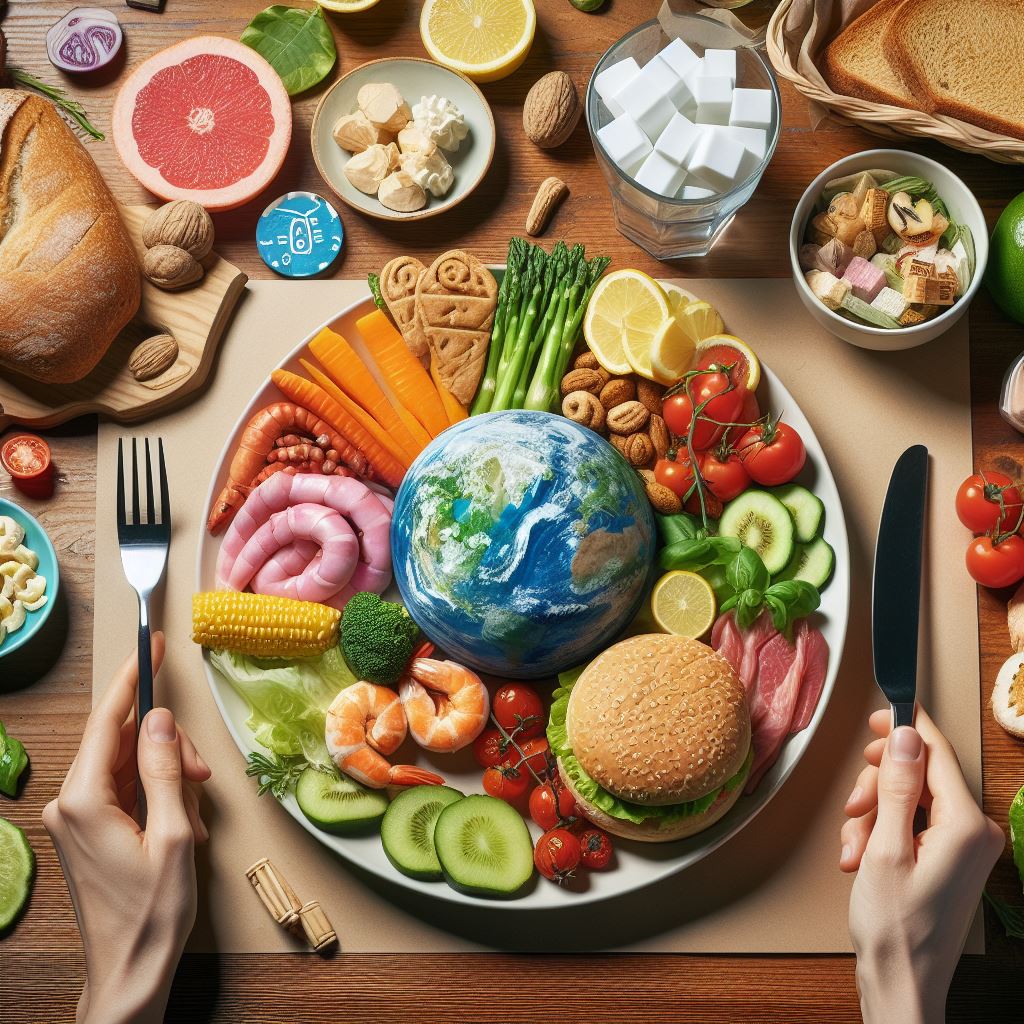
Climate change, which is getting worse, is starting to have such an impact that we can literally taste it.
It not only affects food production and prices, causing them to fall and rise, but it also changes the experience of our tastes.
In some cases, it works to calculate the nutritional value.
There have been many related studies over the years.
One of them warned in 2015 that “Heat and dryness “It is likely to reduce the quality of grains, grapes, vegetables, fruits and other crops.”
Almost nine years later, we have now reached this point.
The flavors or even textures of food as we know it are starting to change due to the climate crisis.
As temperatures change and seasons change, the growth and ripening processes of products also change.
The productivity of many crops has already declined, due to increased diseases, increasingly harsh weather or reduced flowering as the weather often seems crazy.
In several regions, it greatly affects the production of lemons, beets, potatoes, lentils, and chickpeas.
Experts warn that carrots lose some of their texture and flavour. Cabbage can become more bitter.
The eggplant may become discolored.
Don't leave meat and seafood unscathed either.
Heat stress also affects them.
It can be very dangerous for pigs and chickens.
At the same time, rising ocean temperatures threaten the decline of some cephalopod species, such as octopuses, or even the extinction of others.
Beyond production, global warming is now having an impact on the taste and texture of food
Changing systems
The worrying signs are summarized in an interesting article by the Spanish website Moral Raquel Pico.
For French cheese makers, for example, the effects of climate change on their production are already a serious concern.
One of France's most important culinary products, in many types and flavours, cheeses are closely linked to their places of origin.
But what happens when climate conditions change?
The question is not rhetorical, but now existential for many producers.
They even fear losing the conditions required by the designations of origin of their cheeses.
It is no longer considered ridiculous at all.
They explain to them The New York Times Producers of the famous picadon cheese, made mainly from goat's milk in the Drome department in southeastern France, get its unique taste and strong aroma from the herbs and shrubs of the region.
The entire food production system was based on an agricultural cycle linked to the climatic pattern.
But this is now changing dramatically.
If the goats are not fed the same way as in the past, their milk will change. And the taste of cheese as well.
Of course, French cheeses are not the only ones under threat.
Until the apples It's changing, as a long-ago study by Japan's National Food and Agricultural Research Organization documented.
Notice the differences in taste and texture.
They are now less hard and acidic, with more watery cores.
But the list doesn't stop here.
“Sips” of changes
As the average global temperature rose and climate patterns changed, grapes began to ripen earlier.
This results in a wine with a higher alcohol content due to increased sugar levels.
This not only affects the quality.
As with cheese, so in the case of wine, appellations of origin – linked to grape varieties, but also to flavours – are at risk.
What distinguishes a French Bordeaux from a California Cabernet is the taste, “and a lot of that has to do with the climate.” He explains Researcher Gabriela Petrick.
At the same time, due to climate change, grape growing is spreading to areas that were previously off the production “map”, such as e.g. England.
There are also ups and downs in the global coffee market.
Areas known to grow certain types of coffee are at risk.
In fact, experts warn that half of them will stop bearing fruit by 2050.
Many coffee varieties are threatened with extinction, with 60% of wild species at risk of extinction.
The coffee industry is now experimenting with old and new varieties, methods and combinations, more resistant to new climatic conditions.
But eventually the aromas and taste in the cup will change.
They stress that this is to be expected Stady Researchers from Tufts University and Montana State University, even as the height of coffee crops changes.
This is a trick by producers to avoid overheating, which nevertheless affects the amount of light the plants receive.
Even the taste of beer is at risk.
As the summer season becomes longer, drier and hotter, hop crops are affected.
Its production is declining and its prices are rising.
Thus the beer becomes less bitter in the cup and more…in the pocket.

“Avid problem solver. Extreme social media junkie. Beer buff. Coffee guru. Internet geek. Travel ninja.”





More Stories
One UI 6.1: Samsung's important update will be rolling out from today – devices that support it
Download Epic Games Store Easter games absolutely free
Bad manta for Windows 11?